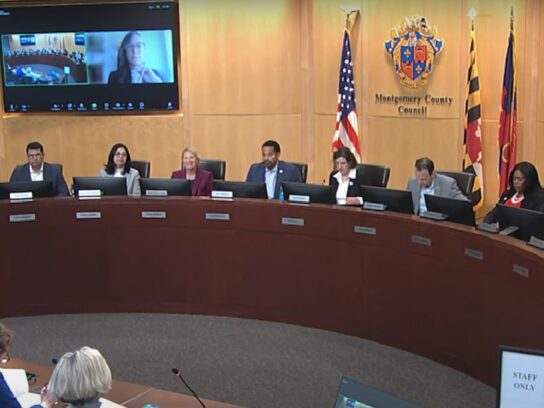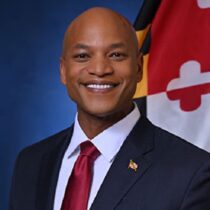
By a vote of 9 to 2, Montgomery County Councilmembers voted to override Executive Marc Elrich’s veto and again support a pilot program designed to encourage developers to convert buildings at least 50% vacant into housing.
The bill, led by Councilmembers Natali Fani-González and Andrew Friedson, establishes a minimum payment in lieu of taxes for certain conversions of high-vacancy commercial properties to residential use. It establishes the amount of payment in lieu of taxes.
It is part of a several proposals called More Housing N.O.W.
There are currently 16 office properties with more than a 50 percent vacancy rate in Bethesda, Germantown, and Silver Spring that could be eligible for this program.
The bill would require that the PILOT exempt 100 percent of the real property tax that would otherwise be levied for a period of 20 years. Additionally, 17.5 percent of the dwelling units must remain restricted to households earning 60 percent or less of the area median income.
“I believe the urgency of our housing crisis demands action now,” said Councilmember Laurie-Anne Sayles. By overriding Elrich’s veto, “We are choosing action over delay.”
Councilmember Andrew Friedson pointed out vacant buildings result in reduced revenues for the county since owners pay dramatically less in property taxes as the buildings are accessed at a lower rate.
The vacancy rate among buildings is growing, and those buildings need to be repurposed, he said. “It’s a win, win for the county” as it helps communities living around vacant buildings, adds housings and brings in revenue.
“This is a solution,” Friedson said.
Councilmember Evan Glass stressed the need for more affordable housing. “The Montgomery County we live in, people cannot afford to live here,” he said.
Both Councilmembers Will Jawando and Kristin Mink voted against overriding the bill.
“In my view, it is fiscally irresponsible,” Jawando said, noting he believes the bill is so broadly written that “not everyone knows who it applies to.”
Jawando is concerned that the bill will incentivize companies to make their buildings vacant. He called the pilot “extremely generous,” and said it should remove retail.
Mink said she was concerned the county “would be losing taxes” which would “hurt our revenue stream in a time when we need all the help we can in our revenue stream.” She pointed out that some developers might convert their property into housing even without this pilot program.
At the end of 2024, the countywide office vacancy rate rose to 18.5 percent with vacancies concentrated in older, functionally obsolete office buildings, according to the county.
At the same time, the lack of housing supply drives up costs for residents. The median sales price of homes increased by 11.2 percent across all unit types last year, while wages have only increased by 1.7 percent, according to the county.


Comments are closed.